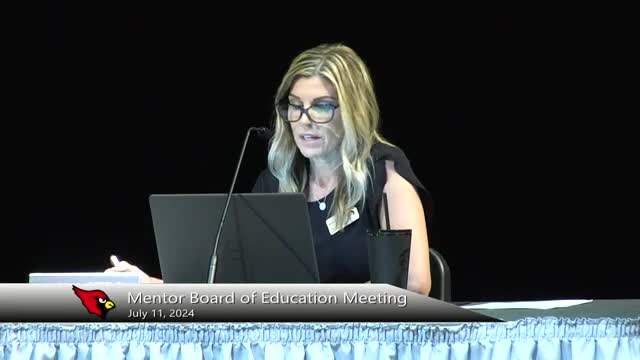School Board Faces Legal Challenges Over Sexual Content Policy
July 12, 2024 | Mentor Exempted Village, School Districts, Ohio

This article was created by AI summarizing key points discussed. AI makes mistakes, so for full details and context, please refer to the video of the full meeting. Please report any errors so we can fix them. Report an error »

During a recent government meeting, discussions centered on the importance of maintaining a sexual content policy in schools, with participants expressing concerns about the implications of altering or removing such guidelines. One speaker emphasized that the existing policy provides an essential layer of protection for parents, allowing them to be notified if their children are exposed to explicit material in school libraries. This sentiment was echoed by others who argued that the policy, while not foolproof, offers peace of mind to families.
The conversation also touched on the potential legal ramifications of changing the policy. A participant highlighted ongoing lawsuits in various states, including Iowa and Florida, where bans on books depicting sexual activity have been challenged in court as unconstitutional. These cases underscore the risks associated with implementing restrictive policies on educational materials, as they may lead to legal scrutiny and liability for school districts.
Additionally, the meeting addressed the practicality of a two-tiered access system for books, which would allow parents to choose the level of access their children have to certain materials. While some members supported this approach, others raised concerns about its feasibility, citing the extensive number of titles already available in school libraries and the challenges of vetting each one.
Overall, the discussions reflected a complex balancing act between parental rights, student access to diverse literature, and the legal implications of educational policies. The meeting concluded with a call for further consideration of the existing sexual content policy, emphasizing its role in fostering trust between schools and families.
The conversation also touched on the potential legal ramifications of changing the policy. A participant highlighted ongoing lawsuits in various states, including Iowa and Florida, where bans on books depicting sexual activity have been challenged in court as unconstitutional. These cases underscore the risks associated with implementing restrictive policies on educational materials, as they may lead to legal scrutiny and liability for school districts.
Additionally, the meeting addressed the practicality of a two-tiered access system for books, which would allow parents to choose the level of access their children have to certain materials. While some members supported this approach, others raised concerns about its feasibility, citing the extensive number of titles already available in school libraries and the challenges of vetting each one.
Overall, the discussions reflected a complex balancing act between parental rights, student access to diverse literature, and the legal implications of educational policies. The meeting concluded with a call for further consideration of the existing sexual content policy, emphasizing its role in fostering trust between schools and families.
View full meeting
This article is based on a recent meeting—watch the full video and explore the complete transcript for deeper insights into the discussion.
View full meeting
